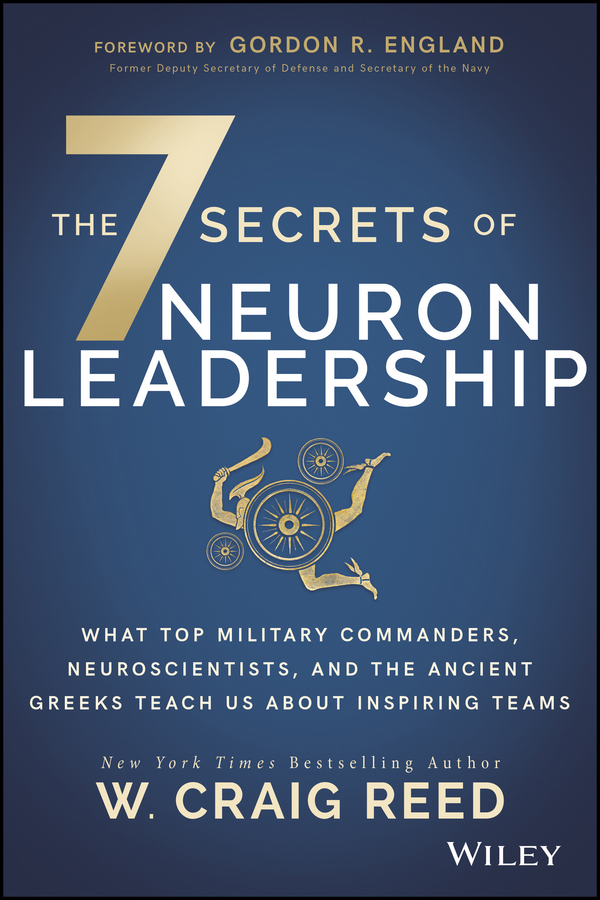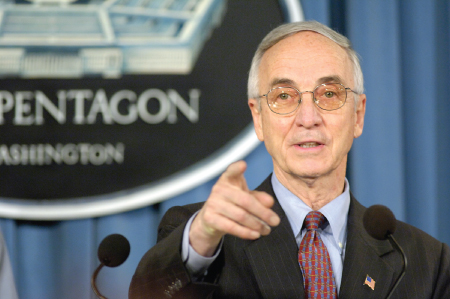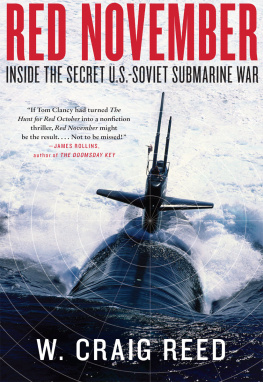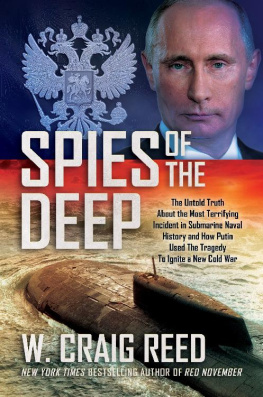
Table of Contents
List of Illustrations
- Introduction
- Chapter 1
- Chapter 2
- Chapter 3
- Chapter 4
- Chapter 5
- Chapter 6
- Chapter 7
- Chapter 8
- Chapter 9
- Chapter 10
- Chapter 11
- Chapter 12
- Chapter 13
- Chapter 14
- Chapter 15
- Chapter 16
- Chapter 17
- Chapter 18
Guide
Pages
THE 7 SECRETS OF NEURON LEADERSHIP
WHAT TOP MILITARY COMMANDERS, NEUROSCIENTISTS, AND THE ANCIENT GREEKS TEACH US ABOUT INSPIRING TEAMS
W. CRAIG REED
Copyright 2018 by W. Craig Reed. All rights reserved.
Published by John Wiley & Sons, Inc., Hoboken, New Jersey.
Published simultaneously in Canada.
No part of this publication may be reproduced, stored in a retrieval system, or transmitted in any form or by any means, electronic, mechanical, photocopying, recording, scanning, or otherwise, except as permitted under Section 107 or 108 of the 1976 United States Copyright Act, without either the prior written permission of the Publisher, or authorization through payment of the appropriate percopy fee to the Copyright Clearance Center, 222 Rosewood Drive, Danvers, MA 01923, (978) 7508400, fax (978) 6468600, or on the web at www.copyright.com. Requests to the Publisher for permission should be addressed to the Permissions Department, John Wiley & Sons, Inc., 111 River Street, Hoboken, NJ 07030, (201) 7486011, fax (201) 7486008, or online at www.wiley.com/go/permissions.
Limit of Liability/Disclaimer of Warranty: While the publisher and author have used their best efforts in preparing this book, they make no representations or warranties with the respect to the accuracy or completeness of the contents of this book and specifically disclaim any implied warranties of merchantability or fitness for a particular purpose. No warranty may be created or extended by sales representatives or written sales materials. The advice and strategies contained herein may not be suitable for your situation. You should consult with a professional where appropriate. Neither the publisher nor the author shall be liable for damages arising here from.
For general information about our other products and services, please contact our Customer Care Department within the United States at (800) 7622974, outside the United States at (317) 5723993 or fax (317) 5724002.
Wiley publishes in a variety of print and electronic formats and by printondemand. Some material included with standard print versions of this book may not be included in ebooks or in printondemand. If this book refers to media such as a CD or DVD that is not included in the version you purchased, you may download this material at http://booksupport.wiley.com. For more information about Wiley products, visit www.wiley.com.
Library of Congress CataloginginPublication Data Is Available:
ISBN 9781119428244 (hardback)
ISBN 9781119428688 (ePDF)
ISBN 9781119428718 (ePub)
Cover Design: Wiley
Cover Image: duncan1890/Getty Images
Foreword
by Gordon R. England

Source: Photo courtesy of the U.S. governmentarchive.defense.gov.
I became the 72nd Secretary of the Navy on May 24, 2001. A little more than three months later, I was thrust into the middle of a terrifying situation where I needed to bring to bear every leadership principle I had ever learned.
Like many Americans, I watched in horror on the morning of 9/11 as terrorists crashed airplanes into the World Trade Center. Our entire military force went on high alert. We didn't yet know who was responsible for this heinous act or where they might be, or if they'd attack us again within hours or days. Tens of thousands of people working for the Navy all around the world wanted answers. Until we could learn more, we had none to give them.
Thousands of enlisted personnel, commissioned officers, and civilian employees stepped forward for their country and shouldered their burdens side by side to ensure that our bases, ships, and personnel were safe, secure, and vigilant. These dedicated men and women, many with different cultural backgrounds and belief systems, exhibited team leadership at every level and exemplified what retired fourstar Air Force General John Michael Loh once told me when he said: No one is more important than anyone else. I often tell people that I was not the Deputy Secretary of Defense or Secretary of the Navy. I served in those roles, but only on a temporary basis. The titles defined what I did; they did not define who I was.
One of the greatest leaders of our time, who I believe personified this philosophy, was President Dwight D. Eisenhower. When he was a young man, he loved history and spent a great deal of time reading stories about the ancient Greeks. Many historians have commented that Eisenhower gained much of his leadership wisdom from his study of the ancients.
Johann Wolfgang (von) Goethe, a famous German writer and statesman, once said: He who cannot draw upon 3,000 years is living from hand to mouth. Like Eisenhower, great leaders often draw upon the wisdom of the ancients, including Aristotle, Socrates, and Plato. This book uniquely unearths interesting and inspirational enlightenment offered by these sages and others to illustrate what separates great and revered leaders from the rest of the pack.
Two additional leaders that I admire and respect are President George W. Bush and his father, President George H.W. Bush. When George W. Bush asked me to be the first Deputy Secretary of Homeland Security, I readily accepted even though I had to reluctantly leave my position as secretary of the Navy. Serving with Homeland Security afforded me the opportunity to leverage and hone my experience and leadership skills in an entirely new organization to protect our citizens from attacks at home.
When George H.W. Bush was only 19 years old, he earned his wings as a Navy pilot during World War II. He was shot down on a bombing run over a Pacific Island and, through excellent Navy teamwork, survived the ordeal. That experience served as a valuable lesson in military team leadership that Bush relied upon throughout his career.
This book contains interviews from dozens of respected military commanders, war heroes, and world leaders, many of whom have achieved great success in civilian roles as CEOs or executives of multibilliondollar firms. They impart harrowing, fascinating, and informative stories and team leadership strategies that clarify and exemplify the seven secrets revealed in this book.
President John F. Kennedy once said that man is still the most extraordinary computer of all and the human mind is our fundamental resource. He believed that leadership and learning are indispensable, and understood the critical need for leaders to expand their thinking and inspire others to do the same. On May 21, 1962, he demonstrated his commitment to this goal by articulating his commander's intent to land a man on the moon by the end of the decade. While serving as an engineer at Honeywell, helping with the design of the Gemini spacecraft, I believed in Kennedy's vision and agreed with his statement that science contributes to our culture in many ways, as a creative intellectual activity in its own right, as the light which has served to illuminate man's place in the universe, and as the source of understanding man's own nature.
Next page













